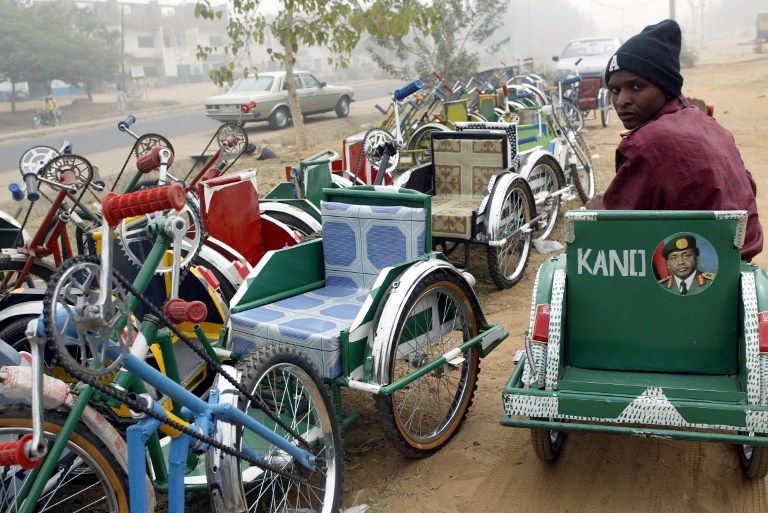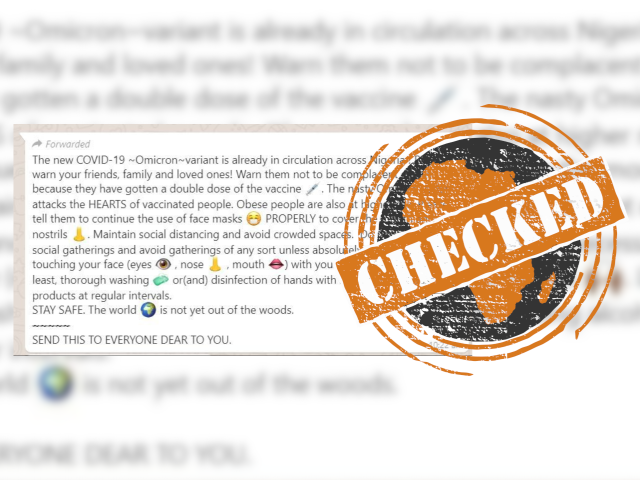As part of his campaign to be re-elected, Nigeria’s President Goodluck Jonathan has reportedly said that his administration has “totally eradicated” polio.
According to This Day newspaper, Jonathan said that the World Health Organisation (WHO) should take the required steps to declare Nigeria polio-free, as it did with Ebola. Jonathan is said to have made the remarks on a visit to the traditional ruler of the Asaba people late last month.
Jonathan’s claim follows that of the health minister, Dr Halliru Alhassan, who said in January that Nigeria would “be certified polio-free” that month. Punch newspaper wrote that Alhassan had said that the country qualifies “to be declared polio-free in line with global requirements” because no polio cases had been diagnosed in the last six months of 2014.
But the chairman of Nigeria’s expert review committee on polio eradication, Professor Oyewale Tomori, was widely reported to have said recently that Nigeria can only be certified as polio-free in 2018 should there be no further cases of polio before then.
Who is right? Could Nigeria soon be officially declared polio-free or only in 2018?
Six cases in 2014

Polio infections are usually symptom-free, but in about one in 200 cases it causes paralysis, usually in the legs and often for life. People can die from polio when the virus paralyses the muscles that help them breathe.
Thanks to immunisation, the disease has been eradicated from most of the world. Only Nigeria, Afghanistan and Pakistan remain on the WHO’s list of polio-endemic countries.
Its toll is highly visible on the streets of Nigerian cities like Lagos, where victims wheel themselves around on skateboards. By mid-2003, polio was on the verge of being eradicated in the country when a group of religious and political leaders in northern Nigeria claimed that the polio vaccine caused infertility. They advised their followers against having their children vaccinated. What followed was a surge in new cases.
Since then the Nigerian government and its international partners have made steady progress in finally eradicating polio. In 2014, Nigeria’s total case count was 6, compared to 53 in 2013, a reduction of almost 90%.
How polio certification works

To ensure that a country is truly free of polio, the WHO requires two waiting periods.
The first is measured from the date that paralysis commences in the last case of “wild polio”. (Wild polio refers to a form of the virus that was common in pre-vaccination times and caused a large burden of disease. It has been virtually eliminated except in the countries where polio is still endemic.) If a year passes without any new cases diagnosed, the WHO removes a country from its list of polio-endemic countries.
Nigeria’s last case was identified on 24 July 2014. The country could therefore be taken off the WHO’s list of polio-endemic countries in four months’ time should there be no new cases.
To be certified polio-free, WHO rules require that a country and its regional neighbours prove that they have stopped the transmission of the polio virus for at least three consecutive years. Detailed laboratory testing data must be submitted to support this.
Therefore, if Nigeria experiences no further cases of polio, the region could be certified polio-free by 2018, at the earliest.
Backsliding still possible…
There are concerns that the upcoming elections may harm Nigeria’s progress. A surge in cases followed every poll since 2003, because outbreaks of violence prevented health workers from immunising children.
There are also worries that the focus on polio eradication undermines routine immunisation programmes. But the systems put in place to tackle polio were credited with helping Nigeria successfully manage its Ebola outbreak last year.
Conclusion: Claims that Nigeria could be declared polio-free in 2015 are incorrect
Nigeria identified its last case of polio in July 2014. Should no further cases be recorded, the country will be taken off the WHO’s list of polio-endemic countries this July.
But it will take much longer for the region to be certified polio-free, as WHO rules require three years to pass from the time the last case is recorded in a country.
At best, Nigeria could be certified polio-free in 2018. Claims that it could happen this year are therefore premature. Nigerians need to stay extra vigilant, especially around election time later this month.
Dr Ike Anya is a Nigerian doctor, specialist in public health medicine, and co-editor of Nigeria Health Watch.
Additional reading
The difference fact-checking makes





Add new comment